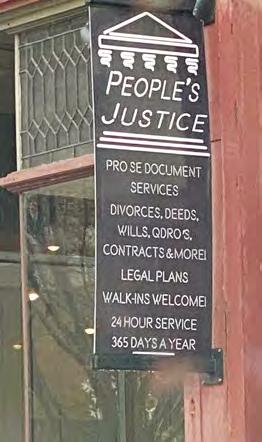
1 minute read
No easy answers for stopping unauthorized practice of law

The past several months at the Bar Association have been loaded with meetings and projects that have filled my calendar and kept our members busy volunteering in the community. I am excited about all the things we have accomplished and the many things that will be done as we finish summer and head into the fall. As many of you are aware, I am action driven. That is why our agenda has been packed with activities for our members, opportunities for community engagement, and pro bono events. I am looking forward to updating members on our busy year during the Annual Meeting on Thursday, November 2 at the Berkshire Country Club. Please save the date and join us for that event.
There is one issue that concerns me and should concern our entire membership. That is the continuous, often brazen, unauthorized practice of law by many public notaries and other individuals who have no expertise – or legal authority – to charge clients for legal services.
The issue is not small, and the complaints we get barely reflect the chronic problem we know underrepresented communities and our profession are facing. During the last few months alone, our Bar Association has received the following complaints:
• Three family law practitioners have reported public notaries who have drafted and notarized Separation Agreements where marital property and assets were divided. The agreements were drafted and notarized by a Notario Público and were later introduced as evidence in legal proceedings.

• One family law practitioner reported a divorce filing by a Notario Público. That same notary openly advertises in a store front window “Divorce from $395.”
• An elderly client who entered into a “Rentto-Own agreement” had paid over $20,000 and later learned that the landlord was not the owner of the property, and the agreement was not recorded. The agreement was drafted and notarized by a Notario Público.
• A client who complained about paying $3,500 to a Public Notary to complete a simple citizenship application – the same N600 form we completed at our April Naturalization Clinic, which takes an average of 1.5 hours to complete.
These are just some examples of individuals either trusting a public notary because they thought the notary was an attorney or where the unsuspecting client was ripped off by these individuals who have no business engaging in what clearly is the practice of law.
But why is this a problem and what has the Legislature done to combat the issue?
Continued on page 7










